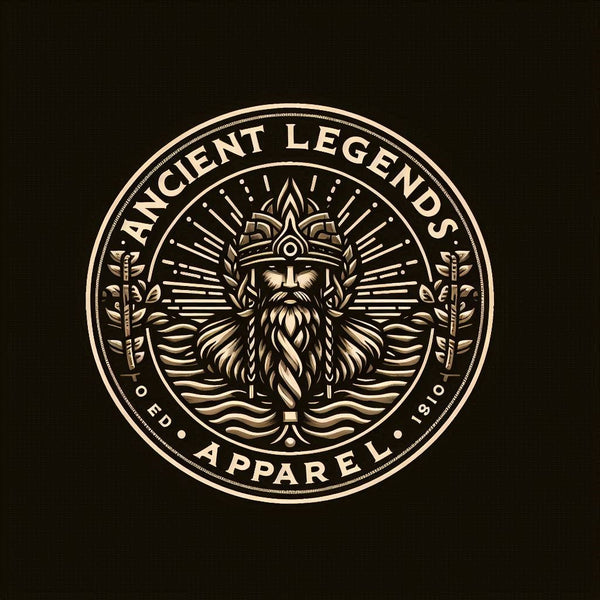What Ancient Cultures Believed About Roman Legends
Karl FShare
INTRODUCTION
The vast tapestry of Roman legends have fascinated historians, cultures, and societies throughout history. They embody a universal understanding of timeless principles: experiences of struggles, triumphs, unfulfilled ambitions, and tragic losses. Moreover, Roman legends reflect the spiritual beliefs, philosophical inquiries, societal norms, and political aspirations of the ancient Romans. This article delves into what other ancient cultures believed about these Roman Legends, exploring their origins, interpretations, and influences throughout history. Like whispers on the wings of Time, these tales continue to teach us lessons about human nature and inspire a sense of wonder towards the mystery of the universe.
ORIGIN AND CULTURAL CONTEXT
The birth of Roman legends coincides with the dawn of Rome itself, around the 8th century BC. From the fabled founding of the city by Romulus and Remus, to the amorous exploits of the gods, these tales were perceived as historical fact by ancient Romans and etched into the city's very foundation. These stories, filled with gods and mythical heroes, are likely influenced by Greek mythology which was well known to the Romans. Furthermore, the rituals, festivals, and ceremonies practised by Romans reflected these myths, infusing them with a religious dimension.
Roman legends are also heavily impacted by the cultural and political context of the time. For instance, the legend of Hercules, the demigod embodying strength, valor, and perseverance, appealed to the martial society of Rome, which valued and upheld these virtues. Legends of the gods and goddesses, with their human desires yet divine powers, provided the Romans with models of conduct and moral compass areas, serving both a social function and meeting spiritual needs.
THE LEGEND OR STORY
One legend deeply ingrained in the Roman ethos is that of the heroes Horatius Cocles and Mucius Scaevola whose inspiring acts of bravery against the Etruscans exhibited the spirit of Roman virtue. Horatius, a noble Roman, defended the Pons Sublicius, the bridge leading into Rome, single-handedly against invading Etruscan forces, while his compatriots destroyed the bridge behind him. Mucius, later named Scaevola or "Lefty," was a young Roman who attempted to kill the Etruscan King Porsena. Even when captured, Mucius was courageous enough to place his right hand into a burning brazier, demonstrating the fierce endurance Romans were capable of.
INTERPRETATIONS AND SYMBOLISM
Held in the highest esteem by Romans, the tales of Horatius and Scaevola have often been read as symbolic narratives. They embody Roman qualities of courage, steadfastness, sacrifice, and of taking bold, unhesitant action for the sake of Rome. Many Romans considered these traits as the ideal virtues that moulded an exemplary citizen.
In another vein, the story of Horatius at the bridge invokes the symbolic history of Rome itself. Here, the bridge symbolizes the threshold between the known and unfamiliar, a precarious passage to safeguard. Horatius' bravery and endurance mirror the nascent resilience of Rome, facing insurmountable odds and emerging triumphant.
COMPARISONS IN OTHER CULTURES
Interestingly, the heroes Horatius and Scaevola were known beyond Roman borders. The Greek historian Herodotus, while not directly referencing these legends, narrates similar tales of heroism in Persian and Egyptian cultures. The theme of individuals asserting the might of their nations is apparent in ancient cultures from the Spartans at Thermopylae to the Chinese legendary hero Yue Fei, each reflecting their society's understanding of brave sacrifice.
MODERN REFERENCES AND POP CULTURE
The Roman legends have not lost their relevance with the passage of time, instead finding new life in the realm of popular culture. The legend of Horatius was famously dramatized by Ancient Roman Historian Livy and has been immortalized in various forms of literature, including the 'Lays of Ancient Rome' by English poet Thomas Babington Macaulay. The spirit of these stories continues to inspire modern narratives in film, television, and comics, providing iconic and heroic templates for characters such as Marvel's Captain America or DC's Batman, who like Horatius, defend their cities against any threat.
LEGACY AND LASTING MYSTERIES
Mystery and conjecture often veil the historical authenticity of Roman legends. Did the noble Horatius truly hold an Etruscan army at bay or did the ambitious Mucius burn his hand as a display of courage? Debates around such questions continue to fuel historical investigations. Yet, even as the kernels of historical truth remain contested, the moral and symbolic DNA of these stories weaves through the fabrics of various cultures. Their legacy, unequivocal manifestations of human bravery and sacrifice, continue to be recognised, irrespective of borders or epochs.
Undeniably, there remains a lasting echo of ancient Roman legends – they are a theatre of human virtues and aspirations, echoes of a culture's core, cloaked in tales of gods, warriors and legendary beings. In spite of the passage of centuries, they remain enduringly relevant, continuing to impart their wisdom to future generations. Herein lies their true, everlasting power. They are the mirror and theatre of our shared human experience, testaments to the wisdom of the ancients, and the perpetual footprints of humanity's quest for truth and identity.
